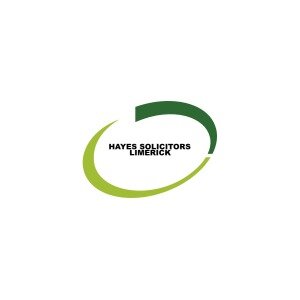Best Conveyancing Lawyers in Limerick
Share your needs with us, get contacted by law firms.
Free. Takes 2 min.
Free Guide to Hiring a Real Estate Lawyer
List of the best lawyers in Limerick, Ireland
About Conveyancing Law in Limerick, Ireland
Conveyancing is the legal process involved in transferring property ownership from one person to another. In Limerick, Ireland, this process applies to both residential and commercial properties. Conveyancing ensures that the seller has the legal right to transfer the property and that the buyer receives good title free from encumbrances. It involves a series of legal checks, document drafting, and registration with the Property Registration Authority. Engaging a qualified solicitor is essential for managing the complex stages and safeguarding your interests during a property transaction.
Why You May Need a Lawyer
There are several instances where you may require the assistance of a conveyancing solicitor in Limerick. The most common include:
- Buying or selling a home or investment property
- Transferring ownership due to inheritance or family arrangements
- Securing a mortgage or refinancing an existing property
- Dealing with shared ownership, boundary disputes, or rights of way
- Purchasing property as an investment or through a company
- Remortgaging or switching your home loan to another lender
Engaging a lawyer ensures that all legal aspects of the transaction are handled accurately and promptly, reducing the risk of disputes or costly errors later on.
Local Laws Overview
Conveyancing in Limerick is primarily governed by Irish property and contract law. Key aspects include:
- Each transaction is subject to The Law Society of Ireland’s recommended practices and conveyancing protocols
- The title system in Ireland is divided between Registry of Deeds and Land Registry. The type of registration affects the documentation and process required
- Stamp Duty is payable on property purchases, with rates and exemptions set by the Revenue Commissioners
- All buyers and sellers must comply with Anti-Money Laundering regulations requiring proof of identity and funds
- Local Property Tax must be up to date before a sale can complete
- For new builds and certain properties, a Building Energy Rating certificate is required
- Special considerations may apply for properties located in conservation areas or subject to specific planning conditions imposed by Limerick City and County Council
A solicitor will help you navigate these regulations and ensure compliance throughout the conveyancing process.
Frequently Asked Questions
What is conveyancing?
Conveyancing is the legal process of transferring ownership of property from one person to another. It involves investigating legal title, preparing and reviewing contracts, handling funds, and registering the new owner with the relevant authorities.
How long does the conveyancing process take in Limerick?
The conveyancing process typically takes between 6 to 12 weeks from the acceptance of an offer to completion, although this can vary depending on the complexity of the transaction and the efficiency of all parties involved.
What documents do I need when buying a property?
You will typically need proof of identity, proof of address, evidence of funds or mortgage approval, and may require additional documents depending on property type and transaction specifics.
What are the main costs involved?
Key costs include solicitor’s fees, stamp duty, property registration fees, search fees, and sometimes surveyor or property valuation charges.
Is a survey necessary?
While not legally required, it is strongly recommended to carry out a building survey to identify any structural, planning or boundary issues before completing your purchase.
What is the role of the solicitor in conveyancing?
A solicitor investigates title deeds, drafts or reviews contracts, liaises between parties, manages funds, deals with mortgage providers, and ensures registration with the Land Registry or Registry of Deeds.
Do I need to be present in Limerick for the transaction?
You do not need to be physically present for the entire conveyancing process. Most matters can be handled remotely through your solicitor, although you may need to sign documents in person or via witnessed signatures.
What happens on completion day?
On completion day, your solicitor transfers the purchase funds to the seller, the keys are released, and you become the legal owner of the property. Final registration and legal formalities are then completed by your solicitor.
Can I pull out of a property purchase?
Yes, you can withdraw before contracts are signed without financial penalty (other than any professional fees incurred). After contracts are exchanged, pulling out usually results in financial loss as outlined under the contract.
Are there specific issues to watch for in Limerick?
Local issues may include flood risk areas, historic or listed buildings, and proposed developments which could affect property value or usage. Your solicitor will advise on any specific Limerick-related matters during due diligence.
Additional Resources
Below are useful resources and organizations for those seeking information or support with conveyancing in Limerick, Ireland:
- The Law Society of Ireland - Provides information on legal practitioners and conveyancing procedures
- Property Registration Authority of Ireland - Handles land and property title registration
- Citizens Information - Offers guidance on property rights, buying and selling property
- Limerick City and County Council - Information on planning, local property taxes, and area-specific regulations
- Revenue Commissioners - Details on stamp duty and tax implications of property transactions
Next Steps
If you require legal assistance with conveyancing in Limerick, start by gathering all relevant documents related to your property or intended purchase. Seek a qualified local solicitor with conveyancing experience to guide you through the process. Arrange an initial consultation to outline your situation, learn about the anticipated steps, and confirm costs and timelines. Open and transparent communication with your legal representative will help ensure a smooth and secure property transfer. For additional guidance, consider reaching out to local legal advice clinics, professional bodies, or consumer rights organizations.
Lawzana helps you find the best lawyers and law firms in Limerick through a curated and pre-screened list of qualified legal professionals. Our platform offers rankings and detailed profiles of attorneys and law firms, allowing you to compare based on practice areas, including Conveyancing, experience, and client feedback.
Each profile includes a description of the firm's areas of practice, client reviews, team members and partners, year of establishment, spoken languages, office locations, contact information, social media presence, and any published articles or resources. Most firms on our platform speak English and are experienced in both local and international legal matters.
Get a quote from top-rated law firms in Limerick, Ireland — quickly, securely, and without unnecessary hassle.
Disclaimer:
The information provided on this page is for general informational purposes only and does not constitute legal advice. While we strive to ensure the accuracy and relevance of the content, legal information may change over time, and interpretations of the law can vary. You should always consult with a qualified legal professional for advice specific to your situation.
We disclaim all liability for actions taken or not taken based on the content of this page. If you believe any information is incorrect or outdated, please contact us, and we will review and update it where appropriate.












